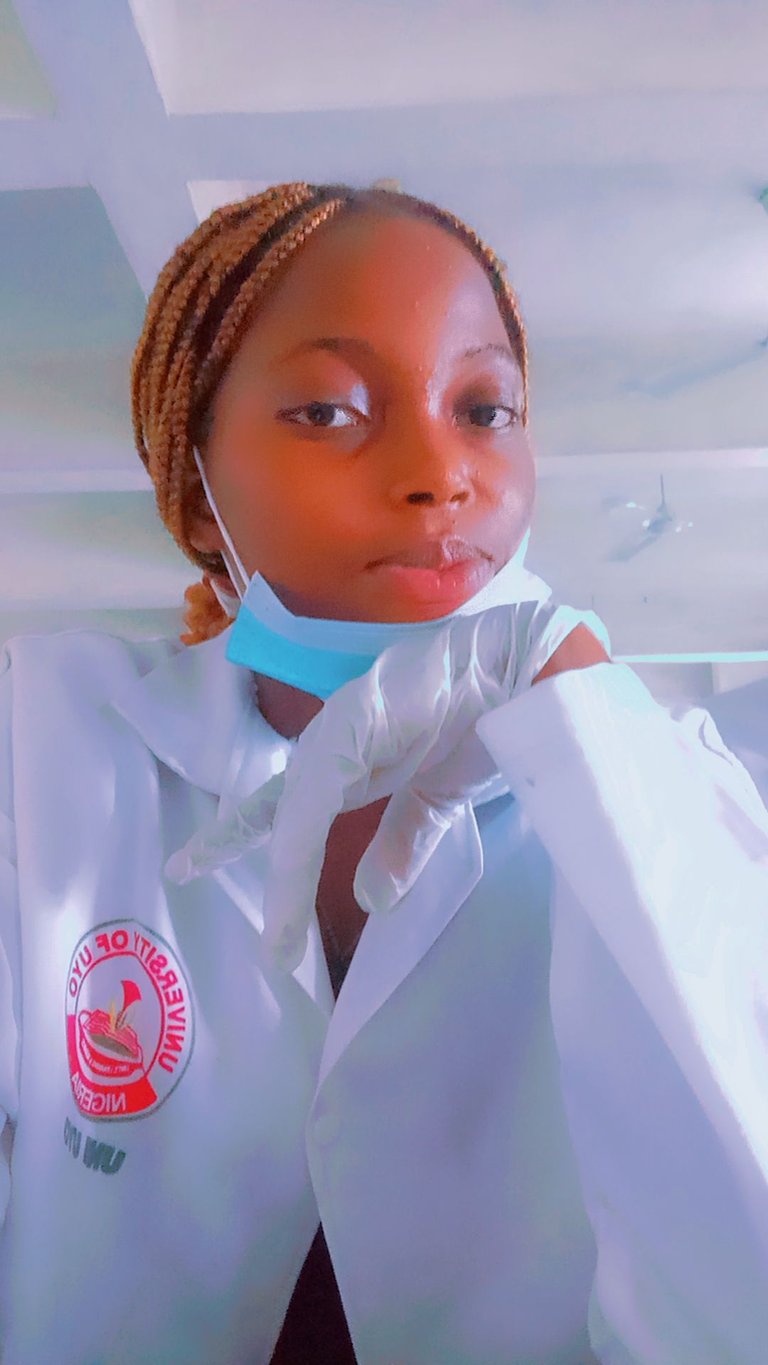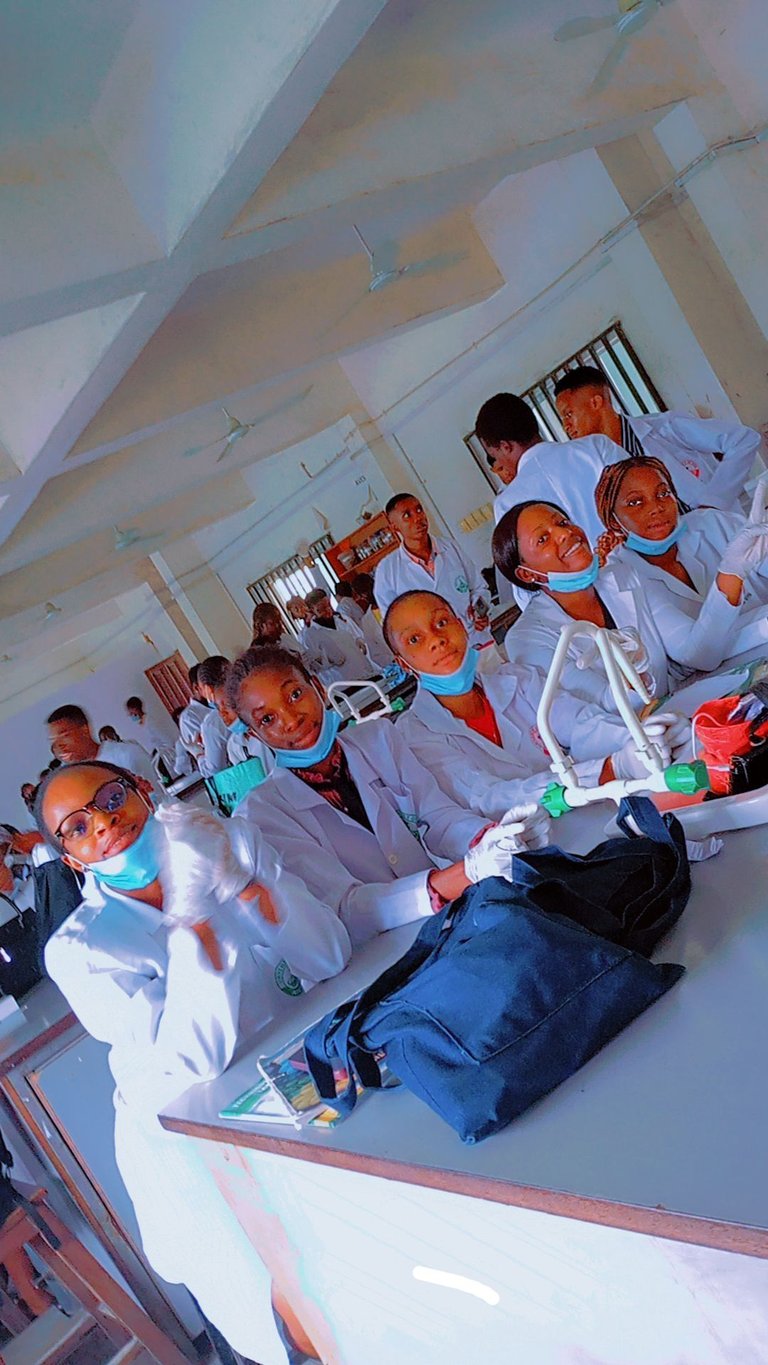"Four," I responded.
"Dr. Paul's class is one of them?" she asked, and I nodded.
It's 2 am, and we were wrapping up our night studies. I noticed Dolly was unusually quiet. She was fine a few minutes ago, so I connected her change in mood to Dr. Paul.
"You don't like his class?" I asked.
"Not really. It's just that I don't seem to understand anything he is teaching us," she said.
"How about you? Do you understand?" asked Dolly.
"A little," I said.

Dr. Paul is one of our biochemistry lecturers. He taught us microbial biochemistry.
Every time we have his class, everyone strives to occupy the front seat because of how complicated the course seems. It's not that the course is genuinely complicated, but he makes it appear so due to his disorganised nature.
This situation highlighted to me the significant role personality plays in our profession. Certain qualities can impact how we conduct ourselves and perform our jobs. While we may not inherently possess these qualities, we can acquire them through self-improvement.
Mr. Paul's course focusses on pathways. The way he illustrates these pathways on the board makes them challenging for us to understand. Everything overlaps, appears scattered, and lacks clear direction. To comprehend his teachings, a student must be sharp, attentive, and in the right frame of mind. Being in the front seat doesn't guarantee understanding; one moment of distraction can lead to confusion. Dr. Paul isn't the type of lecturer who enjoys repeating himself.
One of the tips my sister shared with me for passing university exams is understanding your lecturer and what he might do. This tip really helped me grasp Mr. Paul's teaching, not completely, but to some extent. After each class, I revisited the textbooks to review the topics he covered, especially the ones he illustrated, and the textbooks always provided more in-depth explanations.
Two weeks before the exams, Dr. Paul asked,
"How many of you can draw a pentose phosphate pathway?"
I looked around, but no one raised their hand.
"You guys are not serious. You don't want to pass this course" he said.
However, he took his time to redraw and explain the pathway once more. This time, my friends and I made notes on the key points he emphasised, anticipated questions he might ask, and highlighted important details for drawing the pathway. It seemed like all my classmates (at least the dedicated ones) did the same, as by the end of the class, there was a glimmer of hope on our faces. I could sense satisfaction and confidence among us.
Dr. Paul kept bringing up this pathway a couple more times, and we all agreed it would likely show up in our exams. The only issue was not knowing exactly how it would be presented or if we could comprehend the question and respond effectively.
"Hey, Dolly, do you know all the enzymes in that pathway?" I asked her during one of our late-night study sessions.
"Yeah, I've got all the steps and enzymes down," Dolly replied, grinning broadly. I was genuinely happy for her; I knew she had dedicated a lot of effort to this course.
"I know Dr. Paul has been focussing a lot on this one. But I think we should review all four pathways he covered this semester," I suggested.
"True, he might throw us a curveball and ask for more than one. But we only have 3 hours for the exam."
"Let's try it. Dr. Paul is unpredictable," I remarked.

On exam day, everyone was cramming the pentose phosphate pathway, including me with my piece of paper like the rest of my classmates. While we practiced, a voice inside me urged me to also memorise the other three pathways. I shared this feeling with my friends; three agreed, but Honour thought it would only confuse what we had already learnt.
"Adding those now will just mess up what I've already studied," she said.
"I will say we give it a shot. They aren't even as tough as this pentose thing," said Prince.
As we sat in the exam hall five minutes before the start, the invigilators shuffled us around to prevent any cheating.
But despite the tension, we remained composed.
"I might not know other lecturers' questions, but I'll ace Dr. Paul's," a guy behind me said. He's known for his lack of seriousness, and the invigilator just changed his seating arrangement to prevent any help-seeking shenanigans.
A minute later, the answer booklet and the question paper were shared simultaneously. My heart raced as I observed the puzzled expressions on the faces of those receiving the papers. When the question paper reached us, a girl beside me shouted, "Jesus."
As I scanned the questions, disbelief washed over me. There was no pentose-phosphate pathway; instead, two simpler pathways took its place. Unfortunately, most of us hadn't practiced these. Our focus had been solely on the PPP.
The real dilemma was that many had pinned their hopes on answering Dr. Paul's questions, neglecting the other lecturers' material. I glanced at Dolly a few seats ahead; she was engrossed in writing and drawing. The rest of my friends were occupied as well, except for Honour, who seemed lost in her thoughts. My heart went out to her; she always marched to her own beat.
I looked around and noticed only a handful of students with composed expressions. They are the serious students of the department, and they have been too serious to be swayed by Dr. Paul's areas of concentration.
Posted Using InLeo Alpha
Hello @phyna,
This is a well-written story. You offer details that bring the story to life. You build tension. We can feel the students' anticipation, and apprehension. When the final test comes we wonder how it worked out. You describe the expressions on students' faces, but you don't let us know the ultimate outcome. How did you do? How did Honour do? Was that lost-in-thought expression an indication of failure? Dolly was engrossed, and other friends were engrossed. Did they pass? If the story were less well written, we probably wouldn't care. But we do. We feel a little let down at the end when you don't let us know the actual outcome.
I offer this suggestion because I think you have the skill to benefit from it. I related to the struggle before the exam--anyone who has taken serious exams can relate to this. All the more reason I wanted to know how you did, and how your friends did.
Keep writing. You have a clear, expressive style.
I should have given the story a satisfactory conclusion, I will surely improve.
Thank you so much for this wonderful review. It means a lot to me. ❤️
🌻🌷